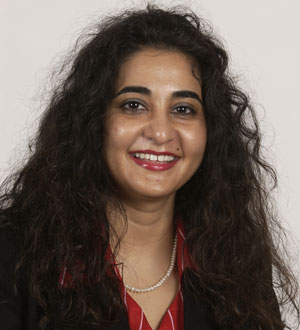According to The Boston Consulting Group, nearly 50,000 jobs in science, technology, engineering and mathematics (STEM) are going unfilled in Washington state. This gap in skilled STEM workers may seem like a major challenge, but in reality, it is an opportunity for the state to become a leader in training and employing people who have not traditionally been a part of the STEM workforce, such as veterans and people with disabilities.
Our research funded through the National Science Foundation surveyed military personnel and veterans with disabilities to examine factors that determine this group’s willingness to choose IT careers. Understanding these factors is critical to how this workforce need can be met by veterans. Considering Washington state is home to more than 600,000 veterans (with more returning from active duty every day) the STEM workforce gap could be the perfect opportunity to ensure this group has secure, gainful employment.
STEM fields, such as IT, are ripe with opportunity for veterans to pursue meaningful careers that also align with skills they learned in the military. When cross-examining military experience and IT careers, our research showed a strong connection between the two. This includes both hard and soft skills needed for such jobs. For example, several participants revealed they had significant IT experience while serving in the military, along with other transferable skills such as leadership, team work, attention to detail and problem solving. Not surprisingly, veterans who participated showed a strong connection between their military experiences and being in the IT profession, and in particular, the cyber-security field.
However, the research also showed several barriers veterans face as they re-enter the workforce, including a lack of formal STEM education, career guidance and the arduous process of transferring military credits to college credits, as well as negative stereotypes associated with veterans and IT professions. A key to overcoming these barriers is higher education. While military training provides veterans with the work experience and soft skills employers seek, further education – especially a formal degree in a STEM field – is often necessary to enter these careers.
As such, colleges and universities play a critical role in helping veterans reintegrate into civilian life and build long-term careers. Veterans can receive funding for higher education through several sources, including the Post 9/11 GI Bill, Veterans Retraining Assistance Program (VRAP), Workforce Investment Act and the Yellow Ribbon Program.
In fact, at WSU, more than 800 veterans are using education benefits to earn degrees in a wide variety of fields spanning political science, business, engineering, math and life sciences. Many military veterans already have relevant experience in these areas, helping to make it a smoother career transition.
Programs like those offered at WSU allow veterans to participate in activities and classes designed to help them transition into the academic community, identify career paths and locate potential employers. For example, WSU’s Office of Veterans Affairs maintains close relationships with top organizations such as Boeing, Microsoft, Schweitzer Engineering Laboratories and the Bureau of Land Management, which are interested in hiring veterans.
It is clear there is great opportunity in Washington for veterans to pursue STEM careers. The good news is that 70 percent of participants in our research were not only interested in IT careers, but also had high intentions of pursuing them. However, the data also reveals that more work needs to be done to attract and retain veterans with disabilities in IT careers. The remaining 30 percent of participants fell into two distinct groups – one that clearly has the confidence and abilities to enter IT careers but does not have desire to do so, and another that lacks both, as they see their disability hindering their aspirations to enter IT. With this in mind, colleges, universities, businesses and community members can each help by hiring qualified veterans to fill STEM positions, and by mentoring and inspiring more veterans to enter this lucrative career path.
This research is being funded by a grant from the National Science Foundation (HRD #1245195). Any opinions, findings, and conclusions or recommendations expressed in this article are those of the authors and do not necessarily reflect the views of the National Science Foundation.
K.D. Joshi is a professor in the WSU Carson College of Business’ Department of Management, Information Systems and Entrepreneurship. Joshi’s research interests focus on knowledge management, health IT, value-sensitive design, crowdsourcing and information technology (IT) workforce issues.





